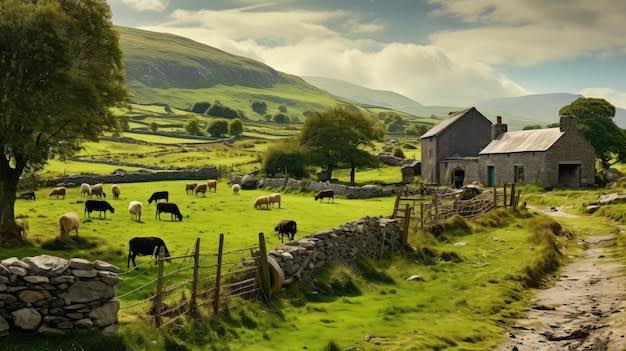≡-Trump’s Temporary Pass for Immigrants Shows A New Era for US Agro-Tourism or More Controversy? – Viral of Today
<> Viral of Today <>
Home » TOURISM NEWS » Trump’s Temporary Pass for Immigrants Shows A New Era for US Agro-Tourism or More Controversy? Monday, June 30, 2025The ongoing debate over immigration policy in the United States continues to evolve as the Trump administration moves toward creating a temporary pass for immigrants working in specific industries, notably agriculture. In an exclusive interview with Fox News, President Donald Trump revealed that his administration is working to implement a plan that would allow immigrants—especially those who have been working in agriculture for years—to remain in the U.S. under certain conditions. This move represents a significant shift in the administration’s approach to immigration enforcement, particularly in relation to farmworkers.This latest development has sparked discussions among farmers, immigrant advocates, and policymakers alike. According to President Trump, the temporary pass is designed to provide agricultural workers with a means to stay in the country legally, while also offering farmers more control over their workforce. The move is in response to the difficulties farmers face in securing labor for essential agricultural work, with many of the workers in this sector having been in the country for decades and contributing to the American economy.Trump, during an interview aired on Fox News’ “Sunday Morning Futures,” explained the need for such a solution: “We’re working on it right now. We’re going to work it so that some kind of a temporary pass where people pay taxes, where the farmer can have a little control, as opposed to you walk in and take everybody away.” This remark comes in light of concerns that Immigration and Customs Enforcement (ICE) agents have been targeting long-standing workers in the agricultural sector, many of whom have been employed at farms for years.The president acknowledged that these workers may not have entered the country legally but highlighted their long-standing contributions to the farming industry. He pointed to the strain that immigrant deportations could place on the agriculture industry, which is already struggling with labor shortages. Trump emphasized the economic impact of deporting workers who have been with farms for many years, stating, “When you go into a farm and he’s had somebody working with him for nine years doing this kind of work, which is hard work to do, and a lot of people aren’t going to do it, and you end up destroying a farmer because you took all the people away. It’s a problem.”The Temporary Pass: A Lifeline for Farmworkers?This idea of a temporary pass for immigrant workers, particularly in agriculture, reflects a more pragmatic approach to immigration enforcement, focusing on the needs of the farming industry while still maintaining oversight. Trump’s proposal is being seen by many as an attempt to strike a balance between the administration’s hardline stance on illegal immigration and the practical realities that many farmers face. Immigrants, especially those from Latin America, have long been the backbone of the U.S. agricultural labor force. With labor shortages impacting many industries, agriculture has been particularly vulnerable to disruptions caused by immigration enforcement.However, the specifics of how this plan will work remain unclear. Will it be a short-term solution that provides a temporary reprieve for immigrant workers, or is this a broader shift in how the U.S. approaches immigration policy for key industries like agriculture? The proposal appears to align with earlier remarks made by Trump on social media, where he acknowledged that industries like agriculture, hotels, and leisure were struggling due to the loss of long-term, reliable workers.On June 12, 2025, Trump took to Truth Social to discuss the difficulties that industries like agriculture and hospitality were facing due to immigration policies. “Farmers and people in the hotel and leisure industries have said that the administration’s immigration policy ‘is taking very good, long time workers away from them, with those jobs being almost impossible to replace,’” Trump said. His comments reflected a growing concern among these industries, who have long relied on immigrant labor to fill low-wage, hard-to-fill jobs.The president’s comments came at a time when the White House seemed to waver on its stance regarding immigration enforcement in these sectors. Initially, ICE paused worksite arrests in agriculture, restaurants, and hotels—industries heavily reliant on immigrant labor. However, just days after this pause, the administration reversed the decision, stating that worksite arrests would resume.In response to the reversal, Department of Homeland Security (DHS) spokesperson Tricia McLaughlin reaffirmed the administration’s commitment to enforcing immigration laws, emphasizing that there would be no “safe spaces” for industries that harbor criminals or undermine ICE’s efforts. “The President has been incredibly clear,” McLaughlin stated, “There will be no safe spaces for industries who harbor violent criminals or purposely try to undermine ICE’s efforts.” The DHS statement made it clear that worksite enforcement remained a critical part of the administration’s approach to immigration enforcement.A Closer Look at the Challenges Facing Immigrant FarmworkersThe issue of immigrant labor in agriculture is deeply complex. Farmworkers, particularly those working in the United States without legal documentation, have long been the subject of contentious debates about immigration reform. The agricultural sector has historically depended on immigrant workers to fill low-paying, seasonal, and physically demanding jobs that many native-born Americans are unwilling to take on.In the past, the government’s focus has largely been on immigration enforcement, with little emphasis on addressing the needs of industries like agriculture. Farmers have consistently raised concerns about the impact of deportation raids on their operations, with many warning that the removal of immigrant workers would lead to significant disruptions and economic losses. The agricultural industry’s reliance on immigrant labor is particularly pronounced in states like California, Florida, and Texas, where the majority of farmworkers are of Latin American origin.In many cases, immigrant workers in the agricultural sector have built their lives around their employment, with some having worked on the same farms for decades. The fear of deportation has created a sense of uncertainty and anxiety for these workers, many of whom have children born in the U.S. and have established roots in their communities. For them, the prospect of being torn away from their homes, families, and livelihoods is a harsh reality.For farmers, the situation is equally dire. Many depend on the labor provided by immigrant workers to keep their operations running smoothly. Without these workers, farmers would struggle to harvest crops, manage livestock, and meet the growing demand for agricultural products. The inability to secure a reliable workforce has led to calls for immigration reform that provides some form of relief for both workers and employers.The Politics of Immigration Enforcement: A Delicate Balancing ActThe Trump administration’s handling of immigration enforcement has been marked by a series of policy shifts that have left many stakeholders uncertain about the future of immigration law in the U.S. While the administration has consistently emphasized the importance of enforcing immigration laws and ensuring national security, it has also been responsive to the needs of industries that rely on immigrant labor.The announcement of a temporary pass for farmworkers represents the latest development in the administration’s evolving stance on immigration. It also underscores the political challenges facing lawmakers and policymakers who must balance the demands of enforcement with the practical needs of key industries. As the debate over immigration reform continues to unfold, the administration’s approach to farmworkers may offer a glimpse into future efforts to address labor shortages and provide more flexibility for employers.The Temporary Pass Proposal: A Step Toward Reform?The proposal to create a temporary pass for immigrant farmworkers is being seen by some as a step in the right direction, providing a short-term solution to an urgent problem. However, it remains to be seen whether this plan will be effective in addressing the broader issues facing immigrant labor in the U.S. While the plan would provide some relief to farmers and workers, it does not address the long-term structural issues related to immigration reform.The proposed temporary pass would allow immigrant workers to stay in the country legally, as long as they are employed in agriculture and paying taxes. This approach could help alleviate some of the pressure on farmers who are struggling to find labor. At the same time, it could offer some protection to workers who have lived and worked in the U.S. for years but are now facing the threat of deportation.However, critics argue that the proposal does not go far enough in addressing the systemic issues within the U.S. immigration system. While a temporary pass could provide immediate relief, it does not offer a long-term solution for the millions of undocumented immigrants working in other industries. Additionally, there are concerns that the temporary pass could create a two-tiered system, with some workers receiving protections while others remain vulnerable to deportation.Conclusion: The Road Ahead for Immigrant Workers and U.S. Immigration PolicyThe Trump administration’s plan to offer a temporary pass for immigrant farmworkers represents a significant shift in the country’s approach to immigration enforcement. While the proposal provides a lifeline for both workers and farmers, it also raises important questions about the future of immigration policy in the U.S.As the debate over immigration reform continues, it is clear that finding a balance between enforcement and economic needs will be one of the most pressing challenges facing policymakers. Whether this temporary pass will become a reality or remain a proposal will depend on the political will to address the complex issues surrounding immigration and labor in the United States.In the meantime, farmworkers and farmers alike will continue to face an uncertain future as they navigate the complexities of immigration policy. While temporary solutions may provide short-term relief, it is clear that a more comprehensive and sustainable approach to immigration reform is needed to address the long-term needs of the U.S. agricultural industry and the millions of immigrant workers who contribute to it.«Enjoyed this post? Never miss out on future posts by following us»Tags: farmworker labor policy, farmworker visa reform, immigrant workers in agriculture, immigrant workers tourism impact, immigration policy impact on tourism, temporary pass farmworkers, tourism and immigration policy, Trump immigration plan, U.S. agriculture labor shortage, U.S. agriculture tourism, U.S. tourism industry, U.S. tourism news, U.S. tourism trends
This information will surprise you!
See also
- Read until the end to discover everything.
- Important information you need to know.
- Interesting facts and helpful tips.
Conclusion
Did you enjoy the news? Keep following us daily!













